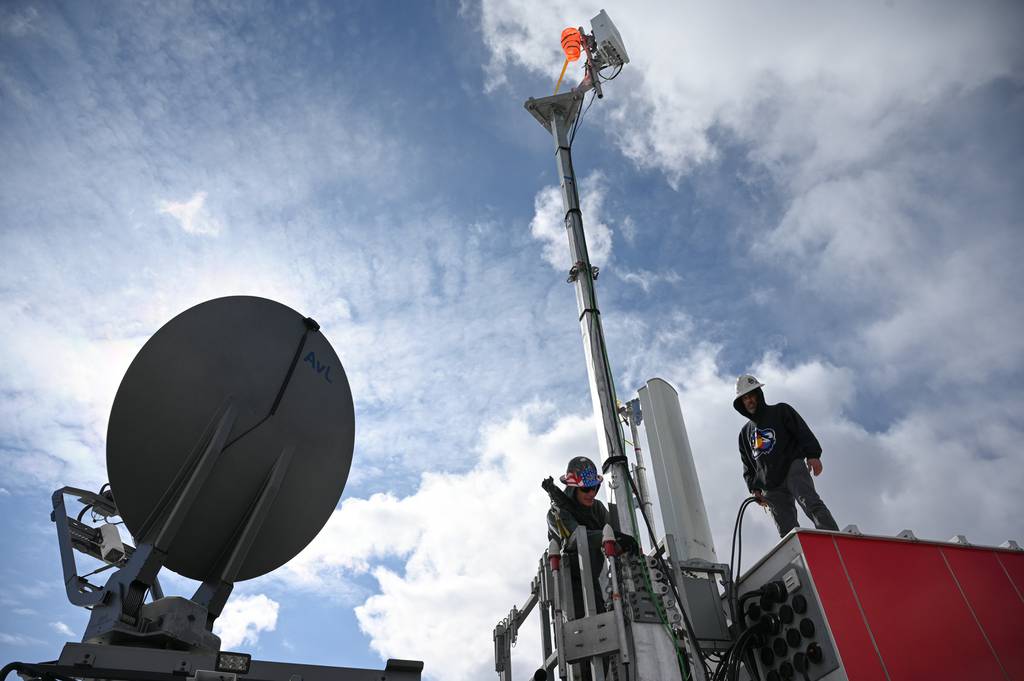WASHINGTON — The U.S. Department of Defense is launching the latest 5G competition with millions of dollars on the table, a move it anticipates will shape the rollout of communication upgrades at military bases.
The “2023 5G Challenge: Advanced Interoperability†was announced Feb. 2 in collaboration with Department of Commerce, and comes a little less than one year after a similar contest.
Participants who prove they can help accelerate the adoption of secure networks, swappable and compatible parts, and what the competition dubbed “true plug-and-play 5G interoperability†are eligible to win up to $7 million in cash or prizes including lab time.
Applications are due March 1. The competition is expected to last two years.
Fifth-generation wireless technology promises exponentially faster speeds and the ability to accommodate more and more-advanced devices — a windfall for defense, logistics, business, health care and more.
RELATED

The technology also has its challenges, though: additional pathways for digital intrusions, pricey infrastructure and sluggish uptake, among them. Amanda Toman, a 5G leader at the Pentagon, previously said the sector is “too critical†to “relinquish to countries whose products and technologies are not aligned with our standards of privacy and security.â€
“The department is committed to supporting innovation efforts that accelerate the domestic development of 5G and future-G technologies,†Toman said in a statement in April. “We will continue our support of all necessary efforts to unleash innovation while developing secure 5G supply chains.â€
The Defense Department secured approximately $338 million for 5G and microelectronics in fiscal 2022. It sought another $250 million for fiscal 2023, which began Oct. 1.
Defense industry players have heeded the department’s call on 5G.
Northrop Grumman and AT&T in January said they successfully relayed intelligence, surveillance and reconnaissance data and video using 5G technologies, a critical step toward advanced networking on the battlefield. In September, Lockheed Martin and Verizon said they were able to securely share and analyze real-time data and other intel captured by a swarm of drones via fifth-generation wireless networks, both private and public. And Viasat in June said it would experiment with 5G as a means to connect Marines and support what are known as expeditionary advanced base operations.
Colin Demarest was a reporter at C4ISRNET, where he covered military networks, cyber and IT. Colin had previously covered the Department of Energy and its National Nuclear Security Administration — namely Cold War cleanup and nuclear weapons development — for a daily newspaper in South Carolina. Colin is also an award-winning photographer.








